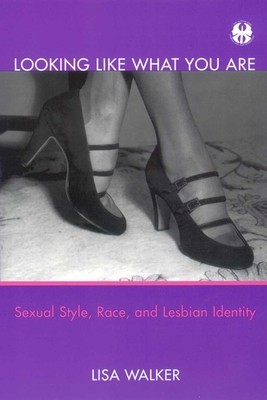
- We will send in 10–14 business days.
- Author: Lisa Walker
- Publisher: New York University Press
- ISBN-10: 081479372X
- ISBN-13: 9780814793725
- Format: 15.2 x 22.9 x 1.8 cm, minkšti viršeliai
- Language: English
- SAVE -10% with code: EXTRA
Reviews
Description
Looks can be deceiving, and in a society where one's status and access to opportunity are largely attendant on physical appearance, the issue of how difference is constructed and interpreted, embraced or effaced, is of tremendous import.
Lisa Walker examines this issue with a focus on the questions of what it means to look like a lesbian, and what it means to be a lesbian but not to look like one. She analyzes the historical production of the lesbian body as marked, and studies how lesbians have used the frequent analogy between racial difference and sexual orientation to craft, emphasize, or deny physical difference. In particular, she explores the implications of a predominantly visible model of sexual identity for the feminine lesbian, who is both marked and unmarked, desired and disavowed.
Walker's textual analysis cuts across a variety of genres, including modernist fiction such as The Well of Loneliness and Wide Sargasso Sea, pulp fiction of the Harlem Renaissance, the 1950s and the 1960s, post-modern literature as Michelle Cliff's Abeng, and queer theory.
In the book's final chapter, How to Recognize a Lesbian, Walker argues that strategies of visibility are at times deconstructed, at times reinscribed within contemporary lesbian-feminist theory.
EXTRA 10 % discount with code: EXTRA
The promotion ends in 22d.17:55:57
The discount code is valid when purchasing from 10 €. Discounts do not stack.
- Author: Lisa Walker
- Publisher: New York University Press
- ISBN-10: 081479372X
- ISBN-13: 9780814793725
- Format: 15.2 x 22.9 x 1.8 cm, minkšti viršeliai
- Language: English English
Looks can be deceiving, and in a society where one's status and access to opportunity are largely attendant on physical appearance, the issue of how difference is constructed and interpreted, embraced or effaced, is of tremendous import.
Lisa Walker examines this issue with a focus on the questions of what it means to look like a lesbian, and what it means to be a lesbian but not to look like one. She analyzes the historical production of the lesbian body as marked, and studies how lesbians have used the frequent analogy between racial difference and sexual orientation to craft, emphasize, or deny physical difference. In particular, she explores the implications of a predominantly visible model of sexual identity for the feminine lesbian, who is both marked and unmarked, desired and disavowed.
Walker's textual analysis cuts across a variety of genres, including modernist fiction such as The Well of Loneliness and Wide Sargasso Sea, pulp fiction of the Harlem Renaissance, the 1950s and the 1960s, post-modern literature as Michelle Cliff's Abeng, and queer theory.
In the book's final chapter, How to Recognize a Lesbian, Walker argues that strategies of visibility are at times deconstructed, at times reinscribed within contemporary lesbian-feminist theory.


Reviews